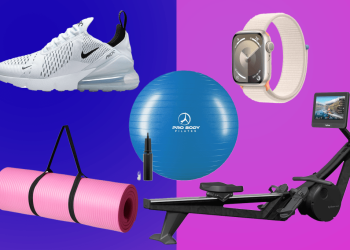Lululemon executives mentioned Mirror 30 times in its latest quarterly earnings call.
Enthusiasm over the technology isn’t a big surprise — in June 2020, Lululemon made a big play by acquiring the at-home fitness company. It seemed to be a natural next step forward. Only a year earlier, the retailer joined in a $34 million Mirror investment round.
The timing for such an investment seemed ripe. The U.S. was a few months into a pandemic where everyone was stuck at home, locked out of events, gyms, and exercise classes. Instead, people were turning to retailers to purchase workout equipment and signing up for streaming services where fitness gurus were only an app away. The demand was so high that Peloton ran into supply chain constraints, and there was even a dumbbell shortage.
Mirror operates as a stand-alone company within Lululemon and dubs itself “the nearly invisible home gym.” Shoppers need only two feet of space, and the product fits inauspiciously within a home. Mirror opens up a world to its users, who can pick from an impressive number of classes within 50 genres, from beginner to expert levels, live or from a library of thousands of on-demand classes. The technology also delivers real-time feedback based on individual goals and allows people to connect with other Mirror users. It is a perfect product for those who are athletically minded and newly aware of the idea that a gym membership isn’t the only way to get gains.
It…



























































